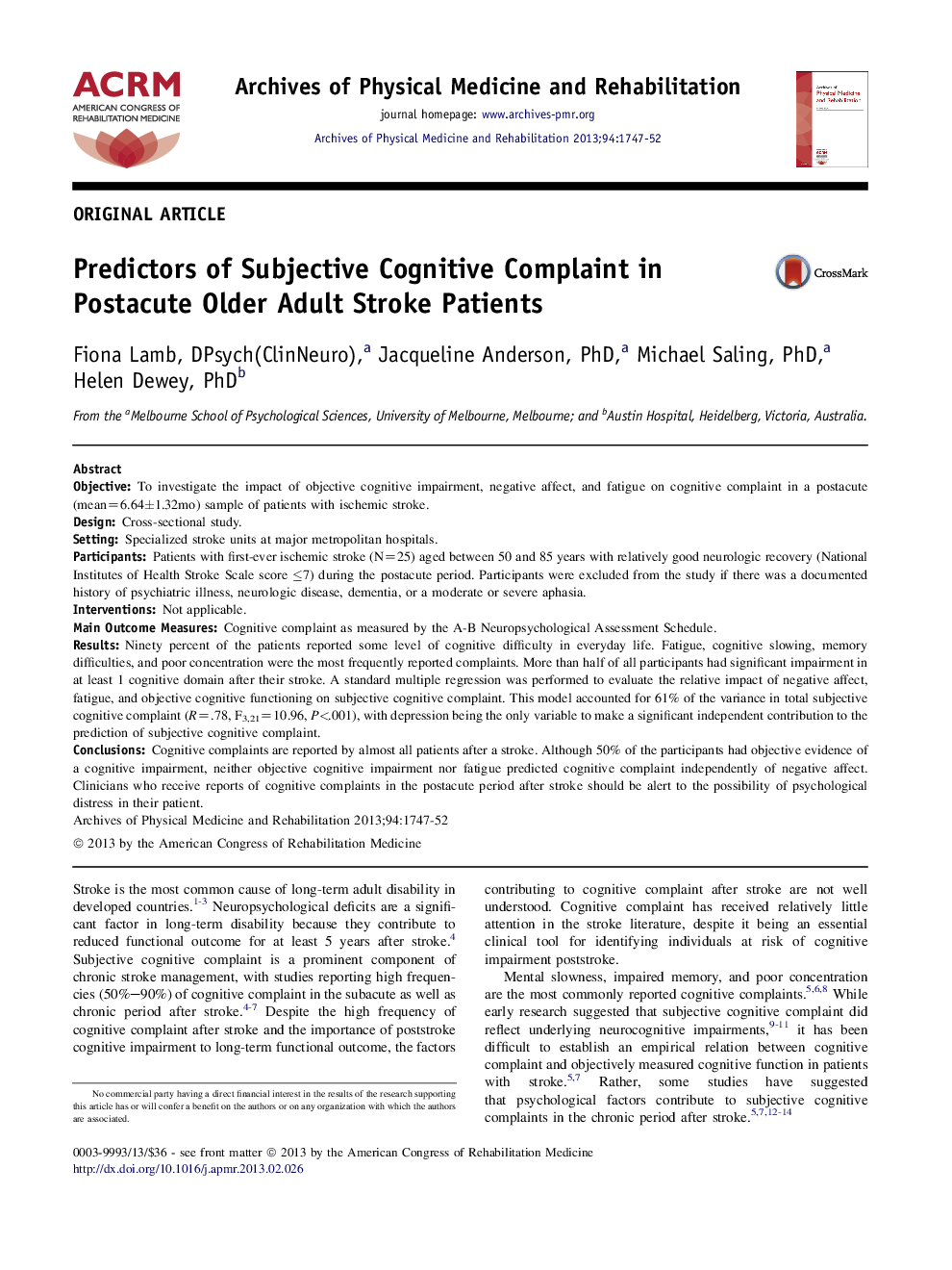| Article ID | Journal | Published Year | Pages | File Type |
|---|---|---|---|---|
| 3448971 | Archives of Physical Medicine and Rehabilitation | 2013 | 6 Pages |
ObjectiveTo investigate the impact of objective cognitive impairment, negative affect, and fatigue on cognitive complaint in a postacute (mean=6.64±1.32mo) sample of patients with ischemic stroke.DesignCross-sectional study.SettingSpecialized stroke units at major metropolitan hospitals.ParticipantsPatients with first-ever ischemic stroke (N=25) aged between 50 and 85 years with relatively good neurologic recovery (National Institutes of Health Stroke Scale score ≤7) during the postacute period. Participants were excluded from the study if there was a documented history of psychiatric illness, neurologic disease, dementia, or a moderate or severe aphasia.InterventionsNot applicable.Main Outcome MeasuresCognitive complaint as measured by the A-B Neuropsychological Assessment Schedule.ResultsNinety percent of the patients reported some level of cognitive difficulty in everyday life. Fatigue, cognitive slowing, memory difficulties, and poor concentration were the most frequently reported complaints. More than half of all participants had significant impairment in at least 1 cognitive domain after their stroke. A standard multiple regression was performed to evaluate the relative impact of negative affect, fatigue, and objective cognitive functioning on subjective cognitive complaint. This model accounted for 61% of the variance in total subjective cognitive complaint (R=.78, F3,21=10.96, P<.001), with depression being the only variable to make a significant independent contribution to the prediction of subjective cognitive complaint.ConclusionsCognitive complaints are reported by almost all patients after a stroke. Although 50% of the participants had objective evidence of a cognitive impairment, neither objective cognitive impairment nor fatigue predicted cognitive complaint independently of negative affect. Clinicians who receive reports of cognitive complaints in the postacute period after stroke should be alert to the possibility of psychological distress in their patient.
